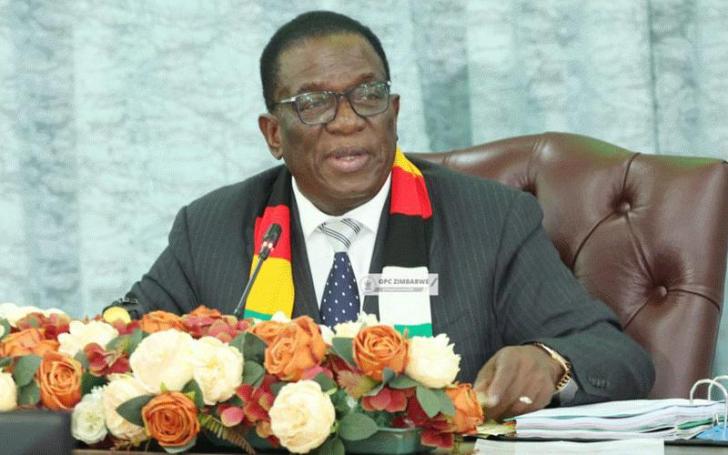News / National
Mnangagwa signs PVO Amendment Bill into law
12 Apr 2025 at 12:45hrs |
0 Views

President Emmerson Mnangagwa has officially signed the contentious Private Voluntary Organisations (PVO) Amendment Bill into law, marking a significant shift in Zimbabwe's regulatory framework for civic groups and non-governmental organisations (NGOs).
The law, gazetted on Friday as Act No. 1 of 2025, amends several key pieces of legislation, including the PVO Act [Chapter 17:05], the Money Laundering and Proceeds of Crime Act, and the Criminal Law (Codification and Reform) Act. With the new Act now officially enforceable, it introduces sweeping changes that have sparked strong reactions from various sectors.
The amendments grant the government broad powers to monitor and control the activities of private voluntary organisations. Authorities will now have the ability to scrutinise the ownership structures, funding sources, and affiliations of civic organisations. The law also introduces strict definitions for "beneficial owner" and "controller," and individuals found guilty of violating provisions related to illicit financing or misrepresentation could face severe penalties, including up to 35 years in prison.
Under the new legislation, the government has the authority to deregister organisations, seize assets, or dissolve entities deemed to be in violation of the law's provisions. A new Private Voluntary Organisations Board, consisting of representatives from civil society and various government ministries, will oversee the regulation of the sector.
Despite intense opposition, including criticism from international bodies such as the United Nations, government officials have defended the amendments, arguing that they are essential for preventing the financing of terrorism and money laundering. They contend that the law will help ensure that donations and funds received by PVOs are not used to support criminal activities.
However, human rights groups have raised concerns that the law could be wielded as a tool to stifle dissent, particularly against organisations that challenge government policies or expose corruption. Critics argue that the law's broad and ambiguous provisions could be used to target civic groups advocating for transparency, accountability, and human rights.
The signing of the PVO Amendment Bill comes amid growing tension between the government and civil society, as Zimbabwe continues to grapple with political and economic challenges. With the law now in force, many observers are watching closely to see how it will be implemented and its impact on the operation of non-governmental organisations in the country.
As Zimbabwe moves forward with this new regulatory framework, the future of the country's civil society remains uncertain, with many fearing that the law could erode the space for independent voices and advocacy.
The law, gazetted on Friday as Act No. 1 of 2025, amends several key pieces of legislation, including the PVO Act [Chapter 17:05], the Money Laundering and Proceeds of Crime Act, and the Criminal Law (Codification and Reform) Act. With the new Act now officially enforceable, it introduces sweeping changes that have sparked strong reactions from various sectors.
The amendments grant the government broad powers to monitor and control the activities of private voluntary organisations. Authorities will now have the ability to scrutinise the ownership structures, funding sources, and affiliations of civic organisations. The law also introduces strict definitions for "beneficial owner" and "controller," and individuals found guilty of violating provisions related to illicit financing or misrepresentation could face severe penalties, including up to 35 years in prison.
Under the new legislation, the government has the authority to deregister organisations, seize assets, or dissolve entities deemed to be in violation of the law's provisions. A new Private Voluntary Organisations Board, consisting of representatives from civil society and various government ministries, will oversee the regulation of the sector.
Despite intense opposition, including criticism from international bodies such as the United Nations, government officials have defended the amendments, arguing that they are essential for preventing the financing of terrorism and money laundering. They contend that the law will help ensure that donations and funds received by PVOs are not used to support criminal activities.
However, human rights groups have raised concerns that the law could be wielded as a tool to stifle dissent, particularly against organisations that challenge government policies or expose corruption. Critics argue that the law's broad and ambiguous provisions could be used to target civic groups advocating for transparency, accountability, and human rights.
The signing of the PVO Amendment Bill comes amid growing tension between the government and civil society, as Zimbabwe continues to grapple with political and economic challenges. With the law now in force, many observers are watching closely to see how it will be implemented and its impact on the operation of non-governmental organisations in the country.
As Zimbabwe moves forward with this new regulatory framework, the future of the country's civil society remains uncertain, with many fearing that the law could erode the space for independent voices and advocacy.
Source - zimlive
Join the discussion
Loading comments…

















